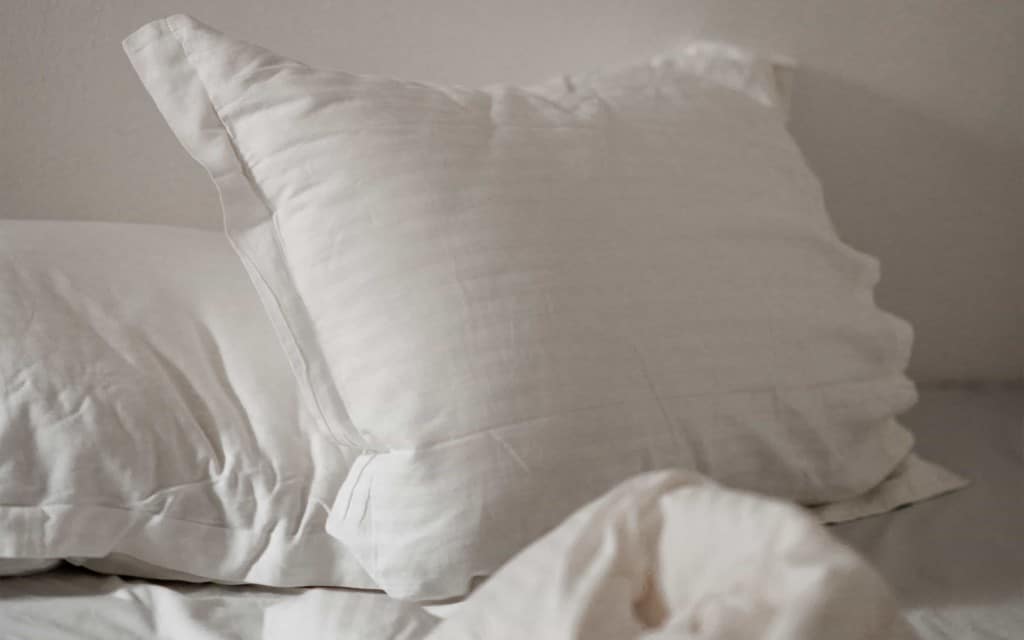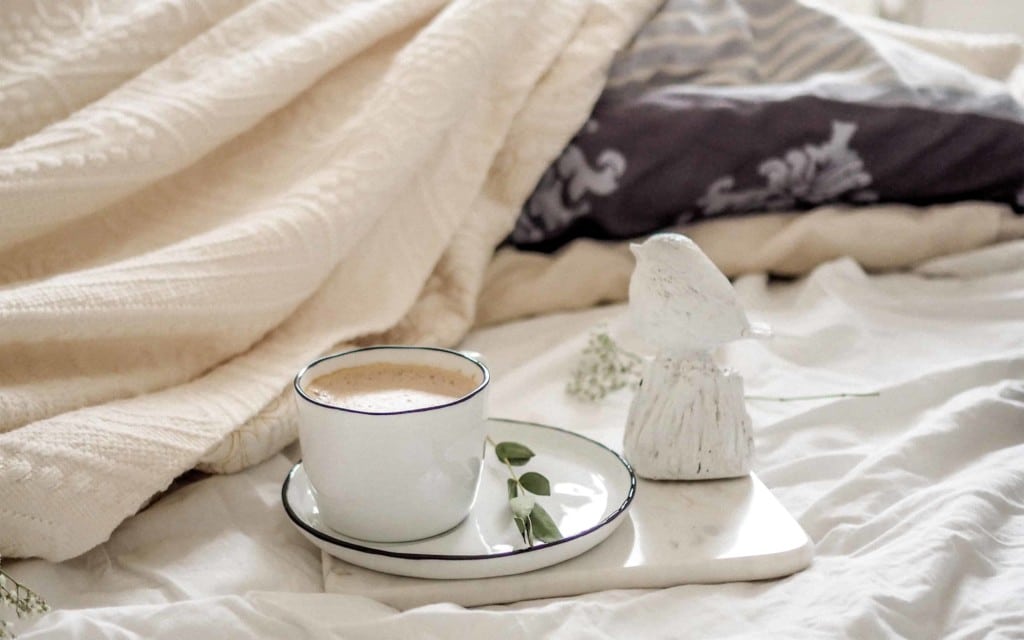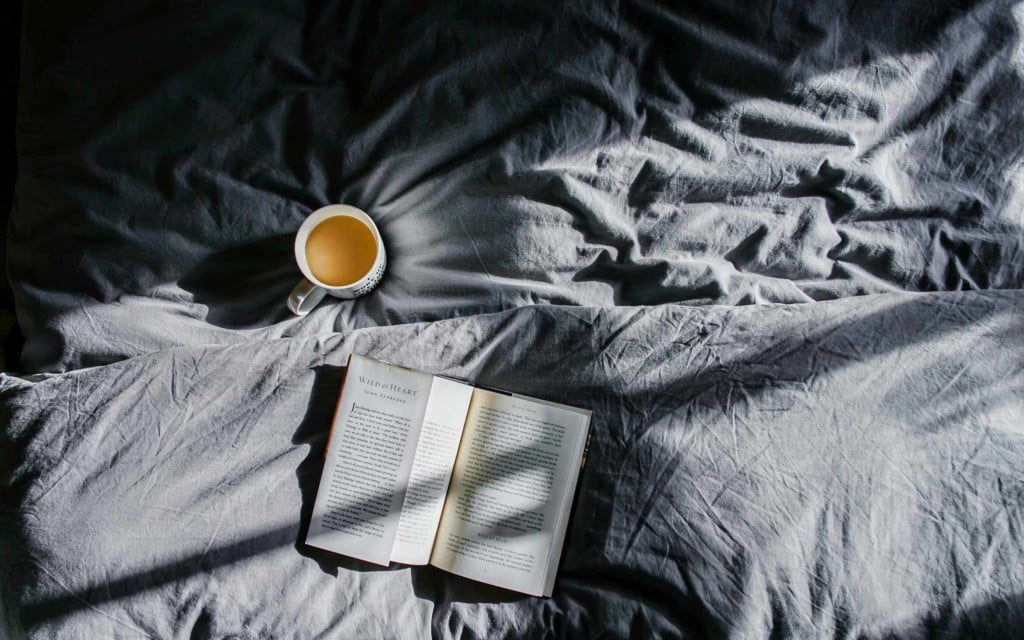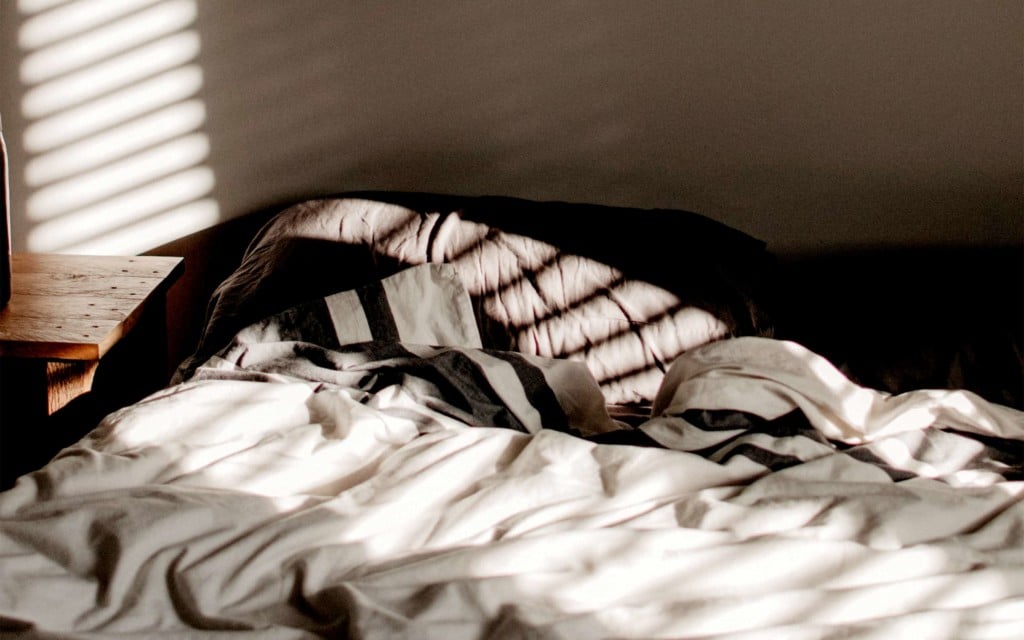Sleep hygiene is a strange term, isn’t it?
At first, it seems like your doctors are telling you that all you need to enjoy a better night of sleep is a quick shower or bath before bed and some fresh sheets.
However, good sleep hygiene actually has nothing to do with how clean you are before you get under the covers.
Instead, according to sleep experts, it’s all about creating a routine or strategy that makes you more likely to get a good night of sleep.
This concept is so essential for high-quality rest, that good sleep hygiene techniques have become the first line of therapy for people with insomnia.
Your sleep hygiene affects your quality of sleep, which in turn, changes how you feel all day. Fail to get this part of your sleeping routine right, and you might struggle with everything from your mental health, to your productivity levels.
So, how do you go about improving your sleep hygiene?
It’s easier than you’d think.
Here, we’re going to explore the concept of sleep hygiene in depth, so you can scrub up your bedtime habits, and wake up feeling more refreshed.

What is sleep hygiene? The truth about clean sleeping
So, let’s start with the basics, what is sleep hygiene, and why is it so important?
Essentially, proper sleep hygiene refers to the rituals and behaviours you engage in before bed. Those activities can either be conducive to a good night’s sleep, like taking a warm bath or winding down, or they can keep you awake — like binge-watching Netflix with a cup of coffee.
If you’re the kind of person who regularly pulls all-nighters, falls asleep on the couch in front of the television, or sleeps in every weekend to try and make up for lost rest, then you’ve probably got poor sleep hygiene.
On the other hand, if you follow a routine every night that leaves you feeling comfy, cosy, and ready for rest — you’re on the right track.
Learning how to practice good sleep hygiene is an easy win for people who struggle from insomnia. Usually, therapists and doctors will teach their patients all about improving sleep hygiene as part of a complete cognitive-behavioural strategy.
The question is, how do you identify the basics of a good sleep hygiene ritual?
Let’s find out.

How to practice good sleep hygiene: The basics
You might think that you’ve got better snoozing habits than sleeping beauty. But there’s a chance you could benefit from improving sleep hygiene in at least one way.
The vast majority of people have problems with their sleep these days. Insomnia has become something of a global epidemic.
Just because you’re getting by and managing not to fall asleep at work doesn’t mean you have good sleep hygiene habits. Here are some of the basics you’ll need to know when it comes to getting a great night in bed.
Step 1: Know how much sleep you need
The first step in developing good sleep hygiene habits is understanding exactly how much rest your body needs. This can be a tricky thing to figure out, as there’s no one-size-fits-all number that applies to everyone.
Most experts suggest that about 7.5 hours is a good starting point for many people. However, you might need slightly more or less sleep depending on your circadian rhythm, and how quickly you move through the five states of sleep.
The best way to find out how much sleep you need? Start with 7.5 hours and see if you wake up naturally just before your alarm goes off. If you don’t, then give yourself another 30 minutes and see what happens.
Step 2: Stick to a schedule
Schedules are at the heart of any good sleep hygiene practices. Once you know exactly how much sleep you need, it’s essential to follow a regular routine each night. Avoid sitting up and watching just one more episode of your favourite show.
Every time you miss out on good sleep hygiene, you’re damaging your mental and physical health. Remember, Netflix will still be there tomorrow. This even counts on weekends.
You shouldn’t be staying up later and sleeping in just because you don’t have to go to work. Stay consistent with your good sleep hygiene habits, and your body will reward you.
Step 3: Create the right sleeping environment
At the heart of any routine for proper sleep hygiene are three things: plenty of high-quality rest, a consistent schedule you can stick to, and the right environment.
It’s much easier to get the kind of recuperating rest that you need when you’re in a cosy bed with no annoying distractions from cars outside, bright lights, or even pesky pets.
Look for a way that you can make your bedroom into a quiet and dark oasis designed for sleep. This could mean playing sleep inducing music as you drift off or investing in blackout blinds. It’s also worth keeping your bedroom cool, as this helps your body to thermoregulate during sleep.

Bad sleep hygiene: What can damage your sleep?
Just as it’s possible to have “good” sleep hygiene, you can just as easily damage your rest routine by creating an environment that’s not conducive to sleep.
For instance, dedicating your bed to sleep, sex, and nothing else is an excellent way to upgrade your sleep hygiene habits. It tells your body and mind subconsciously that when you lay down at night, you’re either going to sleep or get romantic with your partner.
On the other hand, if you lie in your bed all night watching movies and videos designed to keep you awake, your brain starts to get confused. Poor sleep hygiene practices build when we convince ourselves we can ignore rest in favour of entertainment or work.
The next time you tell yourself that you’ll go ahead and sleep when you’re dead, it’s worth recognising that you could be bringing that date closer just by staying awake. Pushing yourself to function without sleep doesn’t just murder your productivity — it’s a killer in other ways too.
So, what can cause poor sleep hygiene?
1. Sleeping Pills
Sleeping pills are more dangerous than you’d think. Aside from the range of side-effects that they can cause, these substances can be highly addictive. They are generally damaging to your overall sleep cycle.
Sedatives give you some bizarre dreams because they disrupt your sleep cycle. They force your body to expend energy and time removing harmful toxins, rather than going through the five natural stages of sleep.
Though a sleeping pill can seem like an easy way out, it’s best to avoid this route if you want good sleep hygiene.
2. Caffeine
A lot of people joke about being addicted to their morning cup of coffee. However, the more caffeine you expose yourself to each day, the harder it is to start improving sleep hygiene. This potent drug is an adrenaline-boosting substance with a 6-hour half-life. Depending on your weight and age, it can take a full 24 hours for your cup of joe to get out of your system.
Even if you have a mug of coffee first thing in the morning at 6am, you still might not be ready to wind down completely when you go to bed at night. While you don’t have to avoid caffeine altogether, the less you consume, the better off you’ll be.
3. Binge sleeping
People with bad sleep hygiene tend to convince themselves that they can make up for lack of good sleep hygiene. They often practice sleeping for longer on the weekend. However, the truth is that you don’t catch up on missed sleep this way. Instead, you just mess up your circadian rhythm with an inconsistent schedule.
When you wake up at the same time and go to bed at the same time every day — including weekend days, you tell your brain what to expect when you reach a certain point in your schedule. This makes it much easier to shut down at the right time.
4. Working too much
We have a problem with leaving the office behind these days. Cloud connectivity and mobile working is on the rise. A lot of people struggle to shut off, even when their workday is officially over. However, working in the evening puts your brain into a stimulated and alert state when you’re supposed to be winding down and relaxing.
Additionally, if you’re checking your emails, or doing work on your smartphone, then you’re also exposing yourself to blue light — the kind of illumination that mimics daytime light.
When your eyes are exposed to something so similar to sunlight at night, your brain gets confused. It’s telling the rest of your body that it’s time to wake up, rather than shut down.

Wake up to the benefits of good sleep hygiene
Most people know that a good night of sleep is essential for health and wellness.
However, research from the University of Rochester also discovered that your brain cells demand sleep to function. When you’re sleeping, your brain removes toxic waste products from your neurones.
The study learned that you can only effectively repair your brain when you’re sleeping. So, if you have poor sleep hygiene, your mind could be deteriorating at a rapid pace.
On the other hand, following good sleep hygiene tips from your doctor (and organisations like Siestio), have a hugely positive impact on your sleeping cycle. Good sleep hygiene improves your non-rapid eye movement sleep (NREM). Hereby allowing you to drift into deeper stage sleep faster, without distractions to keep you in stage one and two.
At the same time, practicing proper sleep hygiene also supports REM sleep — the part of your cycle responsible for memory formation and dreaming.
Endless studies have shown that people who get enough sleep are more likely to live longer, healthier lives.
However, there’s more to getting the rest you need than merely forcing yourself to remain unconscious for a certain number of hours each night using sleeping pills and chemicals. It’s not just the amount of sleep that you get that matters, but the quality of that sleep too.
Good sleep hygiene habits sleep away the dangerous practices that could be damaging your rest and recuperation routine.
That means you get to scrub away all the downsides of poor sleep and wake up to the benefits of truly sensational sleeping patterns instead.

Good sleep hygiene tips to strengthen your snoozing strategy
Ultimately, while it’s easy to tell ourselves that we always have coffee, tea, and energy drinks to help jump-start our days after a bad night in bed, there’s nothing more important than good sleep hygiene practices to make a long-term difference to your sleeping habits.
When you improve sleep hygiene, you enhance your productivity, wellness, and overall quality of life too. It’s really a no-brainer.
Here are a handful of good sleep hygiene tips to follow before bed.
1. Find a way to wind down before you sleep
According to studies by the US National Sleep Foundation, in the hour before bed, around 37% of people are taking care of children, 60% are doing household chores, and 36% are on the internet.
Unfortunately, all of those things are examples of tasks that keep your brain alert and active. Working right until you go to bed doesn’t give your brain a chance to wind down and get ready for sleep. Instead, take the hour before bed to read a book, take a bath, or listen to music — whatever it takes to relax.
2. Keep naps to a minimum
There’s nothing quite like a nap on a Sunday afternoon when you’ve just had your lunch, and you’re recovering from a long week at work. However, the more you nap, the more your sleep hygiene could suffer.
Sometimes naps can be great for an extra productivity boost if you give yourself around 30 minutes or less but entering a period of deep sleep through the day will mess up your natural cycle, and mean that you wake up feeling groggier than ever.
3. Watch what you eat and drink
It’s much easier for most people to fall asleep when they have a full stomach. However, several hours before bedtime is when you should be eating your larger meals.
Having too much food on your stomach when you settle down for sleep can mean that your body has to work harder on digesting that food, rather than making sure you’re ready for rest.
Additionally, sleeping after certain foods can lead to heartburn and acid reflux for some people too. Watch when you eat and drink before bed, and what you consume also. Alcohol might make it easier to sleep at first, but it will disrupt your rest later.
4. Exercise through the day
Finally, the things you do during the day can have a significant impact on your strategy for proper sleep hygiene. Exercise not only improves your overall health, but it also enhances your ability to tire your body out for bedtime too.
Get your exercise in a few hours before you’re due to sleep if you can, as exercise can release chemicals that make it harder to drift off straight away.

Achieving proper sleep hygiene: FAQ
Learning how to use good sleep hygiene techniques when you go to bed each night will help you to fall asleep more quickly and achieve a better quality of rest when you drift off. Fortunately, improving sleep hygiene isn’t as difficult as it might seem.
If you learn how to follow a regular sleep schedule, develop a reliable bedtime routine, and create an environment that makes it easier for you to doze off — you’ll be on the right track. Additionally, avoid anything more likely to keep you awake, including food, caffeine, and distractions.
If sleep remains a struggle, no matter what you do, speak to your doctor. Underlying health conditions can also affect your ability to sleep, and you might need more help than we can offer in this article.
Still got questions?
Q: Why is sleep hygiene important?
Good sleep hygiene ensures that you can continuously enjoy a higher level of good quality and restful sleep, for a more significant amount of time each night. Bad sleeping habits, however, can lead to poor quality and inadequate sleep.
We all know that sleep is essential to our emotional and physical health. However, it’s not just the amount of sleep that matters, but the quality of that sleep too. Good sleep hygiene gives you the most value for your time in bed.
Q: Does sleep hygiene work?
Sleep hygiene is a quick and effective way to improve sleeping practices for many people. Doctors and therapists regularly recommend learning how to practice good sleep hygiene for people who suffer from insomnia. Even if you don’t have insomnia, most people will be able to benefit from a good sleep hygiene strategy.
Q: How can I improve my sleep hygiene?
There are many things that a person can do to start improving sleep hygiene. For instance, it always helps to cut out stimulants like caffeine as much as possible. Additionally, it’s a good idea to develop a routine where you go to bed at the same time each night and wake up at the same time every morning.
Creating an environment that encourages sleep is useful too. Make sure that you have a comfy bed, and a cool dark room to relax in. Avoid exposure to distracting sounds and invest in soothing music or white noise if it helps.
Q: How do you maintain sleep hygiene?
Maintaining sleep hygiene is simply a process of following the same schedule every day. When you’re going to bed at the same time every night, it’s essential to create a before-bed plan. Many sound sleepers suggest doing things like meditating or listening to music before bed. You can also try reading if that helps you to relax. Remember to get up at the same time every morning too — even on weekends.
Q: How do you know if you need sleep hygiene strategies?
Many people suffer from poor sleep hygiene without realising it. If it takes you more than 30 minutes to fall asleep when you get into bed, or you regularly wake up during the night, you could have bad sleep hygiene. You might even spend less than 80% of your time in bed asleep, which means that you’re not getting the deep sleep you need.
Q: Where can I find sleep hygiene recommendations?
Organisations like Siestio can offer advice on how to improve sleep hygiene and enhance your sleeping habits. However, if you’re concerned about your sleeping issues, then you can consider speaking to your doctor too. This is particularly important if you’re getting less than 7 hours of sleep each night because you’re struggling to get to sleep or stay asleep.
Q: What is the most healthy sleep schedule?
The best sleep schedule for your sleep hygiene routine will depend on a lot of different factors. Some people need more sleep than others because of things like genetic conditions. The key to success is experimenting with your sleeping routine until you find something that works for you.
Set a schedule and stick to it for a few weeks and keep notes of how rested you feel each day. If you think you need more or less sleep, you can adjust your pattern accordingly. Some doctors and therapists may be able to help you with your sleep schedule by conducting sleeping tests.
Siestio. Sleep matters.
General advice disclaimer
This article contains general tips and advice. However, no diet or exercise program should be started without consulting your physician or other industry professional first. For more information read our full disclaimer here.







